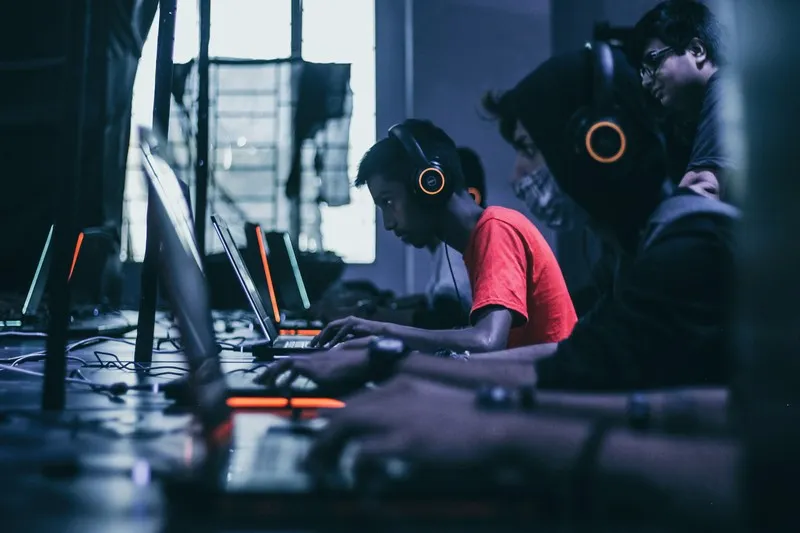Table of Contents
- Introduction
- Game Design as Cultural Production
- Games as Social Systems
- Identity, Representation, and Ideology
- Production and Political Economy
- Platform Ecology and Distribution
- Play Communities and Emergent Practices
- Methodological Approaches to Studying Game Design Sociologically
- Conclusion: Toward a Critical Sociology of Game Design
Introduction
Game design has matured from an artisanal craft practiced by garage coders to a multibillion‑dollar cultural industry that shapes how millions spend their leisure, forge identities, and interpret social life. While sociologists have interrogated cinema, television, and literature for decades, games confront the discipline with distinctive challenges: How does a coded architecture mould social interaction? In what ways do design decisions condense the political‑economic interests of studios, publishers, and platforms? And how do players negotiate, resist, or repurpose those decisions during play? Addressing these questions requires moving beyond textual analysis of game narratives toward a sociology of design—the structured process through which rules, assets, and interfaces are produced.
This article provides an undergraduate‑level overview of the sociology of game design. It synthesises insights from cultural production, systems theory, critical political economy, and practice theory to demonstrate that games not only mirror society but actively make society by organising attention, emotion, and capital. By foregrounding design rather than mere consumption, we illuminate the algorithms, rule sets, and symbolic repertoires through which designers anticipate player behaviour while simultaneously being constrained by organisational structures and market logics. Each subsequent section develops one layer of this multilevel framework, followed by brief methodological guidance and a provocation for future research.
Game Design as Cultural Production
Pierre Bourdieu’s notion of the field of cultural production remains a powerful lens for understanding why games look and feel the way they do. The “field of game production” comprises AAA publishers, independent studios, middleware vendors, certification bodies, and trade press, all engaged in struggles for economic, cultural, and social capital. Designers accrue cultural capital by speaking at the Game Developers Conference or winning BAFTA awards, while AAA franchises translate accumulated economic capital into large art teams and celebrity voice talent. Indie developers, lacking comparable resources, valorise novelty, genre subversion, and auteurism to secure symbolic prestige.
The distribution of capital shapes aesthetic possibility. Photorealistic open‑world titles require proprietary engines, motion‑capture facilities, and orchestral scores, whereas minimalist puzzle games emerge from resource scarcity and privilege mechanical purity. Thus, form is inseparable from the producer’s position in the field.
Game design also exemplifies the tension between autonomy and heteronomy. Creative leads articulate personal visions, yet those visions must satisfy marketing forecasts, platform guidelines, and monetisation strategies. The rise of the live‑service model since the mid‑2010s epitomises heteronomy: rather than delivering a discrete object, studios offer an evolving service whose roadmap is steered by retention metrics and revenue targets. Designers are thereby transformed into data analysts and content managers, blurring the boundary between cultural creativity and industrial logistics.
Games as Social Systems
Niklas Luhmann’s systems theory encourages sociologists to treat games as autopoietic social systems sustained by recursive loops of action and meaning. Each play session instantiates a temporary lifeworld in which players internalise rules, enact strategies, and generate interpretations that feed back into subsequent actions. The interface acts as both a sensory membrane and a communication protocol that structures perception.
Rules and Macro‑Structures
A useful distinction can be drawn between micro‑level rules and macro‑level social structures. Micro‑rules are the explicit mechanics coded into software—hit boxes, stamina costs, probability tables—whereas macro‑structures refer to the emergent norms, hierarchies, and collective repertoires that arise when players coordinate in guilds, produce jargon, and police boundaries of legitimate play (e.g., acceptable class builds in World of Warcraft). Design initiates but does not terminate social structuration; it sets parameters that make certain outcomes more likely. Ranked matchmaking pre‑configures inequality by sorting players into status‑inflected tiers, yet speedrunners repurpose glitches to reconstruct the system around optimisation, and role‑players transform militaristic shooters into theatres for improvised drama. Designers thus participate in what Anthony Giddens calls the “duality of structure”—creating rules that both constrain and enable future reinterpretations.
Identity, Representation, and Ideology
Games do not merely stage action; they stage and circulate identities. Avatar editors invite players to experiment with gender performance, racial markers, and fantastical embodiments, actualising Judith Butler’s notion of performativity in a digital milieu. Yet the palette of possible identities is limited by design choices: body sliders stop before certain sizes, voice lines alternate only between binary options, and narratives frequently reproduce colonial tropes of conquest.
Interface prompts such as “Press X to pay respects” script the player’s emotional posture, demonstrating how ideology permeates micro‑design. Controversies over Grand Theft Auto, The Last of Us Part II, and Animal Crossing reveal that games become ideological battlegrounds over violence, sexuality, labour, and property relations.
Representation is additionally shaped by global political economy. Chinese regulators’ hostility toward “effeminate” male characters has led international studios to redesign heroes for a presumed nationalist audience, illustrating how geopolitical power flows into character modelling. Intersectional scholars warn that the fetish of customisation can mask structural exclusions: offering diverse skin tones does little if, for example, the core gameplay loops glorify colonial extraction. A sociology of game design must therefore practise critical hermeneutics that situate representation within wider regimes of labour, profit, and state power.
Production and Political Economy
Get the full article AD FREE. Join now for full access to all premium articles.
View Plans & Subscribe Already a member? Log in.





